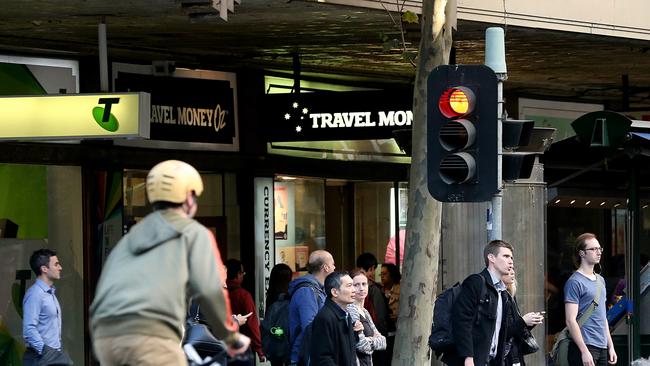
After describing how his customer base would be impacted he added: “Fortunately I’ve been in business for 60 years and I’ve seen it all before, on a number of occasions, and we’ve survived in the past”.
I have experienced all of those 60 years in both journalism and business and there are a few well tried rules that need to be followed to get through what will be difficult times for many people and enterprises.
Be encouraged that “option two” was the wise alternative even though it means that interest rates will quickly rise further and house and share prices are likely to fall sharply in many areas. Yet, the more popular alternative, “option two”, the soft approach, risked 17 per cent interest rates and a catastrophe.
In the front line of the interest rate blows are the vast number of Australians who we’re hosed money by banks and borrowed a total of $650bn in the last two years buying dwellings that will not only fall in price but the higher repayments ahead will stretch finances close to breaking point. Many of those impacted are recent migrants.
Sadly they will need to realise that there are probably two to three more half per cent interest rate rises in the pipeline. They need to begin now (not later) making the necessary spending cuts. They need to beware of postponing the impact via credit cards and only use Afterpay when they are certain they are able to repay the borrowing. Usually it’s best to only use cash.
On the bright side, thanks to a two to three year period of banking madness (fanned by Reserve Bank mistakes) people, who might never have had the chance, were able to buy a house. My advice is to hang onto it because it will recover in price given we have dwelling shortages ahead. Banks are unlikely to evict those making a fair repayment attempts because of the banks’ role in over lending.
And as I documented on Tuesday, foolish mistakes by the Victorian, NSW and Queensland governments are contributing to big rises in rents so staying in a rental property might have been worse than the mortgage payments.
The US has embarked on a similar higher interest rate path so, via US experiences, we know the industries that will be hit quickly although US consumers are more insulated because most mortgage loans are at fixed interest rates. Budget US retailers like Target have been hit and this will reduce supplier profits.
In Australia, Kmart, Big W and Target will also be quickly impacted. But smart down market retailers will seek to compensate by attracting consumers that previously shopped in higher priced stores. Bunnings have experienced a boom so like others who enjoyed a similar experience can expect a slow down.
Amazon has been hit with a loss because they believed that the Covid-19 boosted acceleration to online retailing would continue. But it‘s been curtailed because some shoppers are going back to bricks and mortar.
Amazon will need to refine its business model as will all online retailers in Australia.
Don’t forget that there is a significant part of the population who are affluent and not over borrowed who will seek to continue their current lifestyle. Many have bank deposits that will suddenly return to earning income. Again the smarter retailers we find ways to seek these people out.
The current shortage of labour means that the normal catastrophic unemployment that follows an “option two” style squeeze will be avoided and indeed we will need migrants to fill some of the labour shortages. Again that‘s good for retailers.
Banks should be able to contain defaulting home mortgage rates to manageable levels. Banks will need to encourage their business customers to invest in labour saving equipment and systems but beware that many of the technology gurus who promote these systems do not understand that they are often too complex for consumers to manage. I suspect part of Amazon’s problems are caused by internet frustration.
In Australia, the major football code, AFL, got sold a complex ticketing system which maybe contributing to reduced attendances.
Media enterprises have enjoyed advertising from retailers. If sales become sluggish that advertising rate will be reviewed – a good illustration of the repercussions that are ahead. Of course, like other enterprises, media operators must convince advertisers that those using their services have money to spend.
We have seen a strong swing to Australian made partly due to the unavailability of imported goods. I expect there will be greater availability of lower priced imports. I hope this does not trigger abandonment of local sourcing but it’s a risk.
Climate activists will need to be aware that the high power prices that people are suffering are in part due to the bad implementation of climate policies. There maybe a backlash.
A great many Baby Boomers have left the workforce and plan to live on their savings. The majority who took this step have sufficient money but many those who retired early expecting that capital values would continue to rise may need to return to workforce. They will be welcome.







Just after the Reserve Bank revealed it was taking my “option two” strategy and lifting rates half a per cent, The Australian’s Eli Greenblat called retail veteran Gerry Harvey who responded with the best advice available for what is ahead.